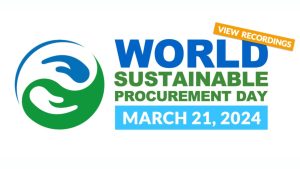Ensuring that the right quality of an item is ordered and delivered may seem like a fairly obvious responsibility. However, doing so in practice requires a fairly sophisticated understanding of market conditions and user requirements, which, like many organisations, municipal departments do not possess.
“There is a higher probability of generating measurable savings if municipal purchasing departments play a pro-active role to assist client departments to identify needs before they arise”, says government procurement expert Stephen Bauld, in this month’s SmartProcurement. Bauld argues that successful municipal materials management may require a counter-intuitive approach towards purchasing.
In recent years, much has been written about just-in-time purchasing, but it is an approach that can create risks if poorly managed: buying something only when it is needed is fine as a general rule, however, following that rule slavishly can lead to poor materials-management practice.
Effective lean procurement of this kind requires careful co-ordination of customer and supplier operations.
Applying lean procurement in government
An important distinction between manufacturing and government is that government operations are far more prone to seasonal variation (certain operations of a municipality may change radically from one season to the next). For certain types of goods and services, annual requirement is less important than seasonal requirement (and, possibly, even more frequent).
For instance, purchasing snow-clearing services and materials, such as road salt and sand, are obviously seasonal activities. However, the ideal season for purchase is rarely tied to the time of peak consumption. Very often, the only time when supply is available is during summer, even though use will not occur until many months after the time when the purchase is made (except for municipalities in the extreme North).
A failure to purchase in summer may mean that a municipality is unable to secure such items when winter arrives, or may expose the municipality to the risk of high spot prices.
At the same time, it is wrong to assume that purchase-in-advance is necessarily the best policy. Anything bought before it is required must be stored (which can be costly, especially for bulk goods) and may become obsolete before it is used, may spoil, is subject to shrinkage and may be damaged.
A purchasing management approach has advantages
A purchasing management approach to procurement is pro-active in nature.
In the private sector, it has been determined that by fostering close working relationships with a limited number of suppliers, promoting open communication between supply chain partners and developing long-term strategic relationships, suppliers and their customers are able to achieve mutual gains.
Benefits flow from enhanced supply management and improved customer responsiveness, leading to improved financial performance of the buying firm. The wider the degree of the arc of integration between suppliers and customers, the stronger the performance improvement.
Government also seeks such a performance improvement as its procurement activity is intended to meet a specific need, such as a duty that a municipality is obliged to discharge, or some other aspect of its operation.
A municipality should introduce prescribed procedures so that arising needs are brought to the attention of those officers and employees of the municipality who are authorised to procure goods, services, construction or other necessary items on behalf of the organisation.
Public procurement across South Africa and elsewhere suffers from, to a significant degree, a large percentage of emergency purchases made outside of the normal rules and regulations governing public procurement. Almost always, the consequence of such purchases is to obtain supply at above the prevailing market price, among other problems.
Therefore, there is a higher probability of generating measurable savings if a more effective method is used to anticipate and meet the regular needs of a municipality. Furthermore, to as great an extent as possible, a municipal purchasing department should play a pro-active role to assist client departments to identify needs before they arise.
Stephen Bauld is a government procurement expert and can be reached at swbauld@purchasingci.com.


























